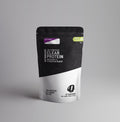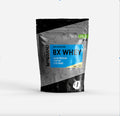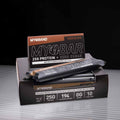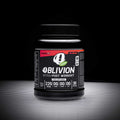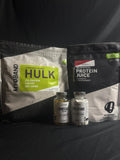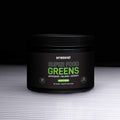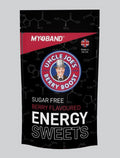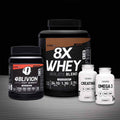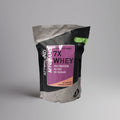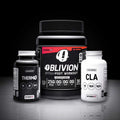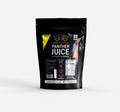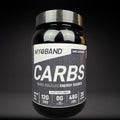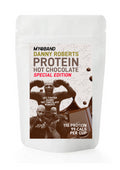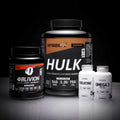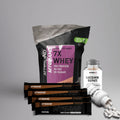Creatine FAQ – How and what type of creatine should I take?
Posted by LIAM KINGSWELL

Author: Gareth Sapstead - Fitness Director
What does creatine do?
Supplementing with Creatine works to increase intramuscular storage of Creatine Phosphate (CP). CP has an extremely important role in the production of energy for short-duration and high-intensity exercise. CP is used for the formation of adenosine triphosphate (ATP) by re-phosphorylating adenosine diphosphate (ADP). In short, if ADP can be converted quicker and more efficiently in to ATP either through the body’s natural sources of CP or by supplementing with Creatine; more energy would become available for intense exercise. By supplementing with creatine, muscular stores of CP would increase, thereby helping to ‘feed’ the ATP-PC/Alactic energy system – the main energy system we use in in the gym when training with near maximal weight or explosiveness. According to a position stand released by the International Society of Sports Nutrition; creatine is the most effective nutritional supplement that’s currently available to athletes and bodybuilders to increase high-intensity exercise capacity and muscle mass during training.
As repeated muscle actions produce a severe reduction in muscular stores of CP, and severely affect performance; increasing muscular stores of CP may improve the ability to repeatedly perform high intensity or explosive muscle actions, via a reduced drop in ATP levels and increased CP replenishment in between sets of exercise, or during the recovery period. Because of this creatine supplementation is effective at producing increases in high-intensity exercise performance, including during resistance exercise, interval training, speed and agility drills, as well as repeated sprints, and strength and power training.
Long-term supplementation with creatine (i.e., more than 4 weeks) alongside a specific training programme has been shown to increase:
- Strength, power and rate of force development
- Sprint performance
- Repeated sprint ability
- Agility performance
- Leg power during cycling
- Olympic weightlifting
- and, Performance during team sports, such as rugby and football
Creatine has been shown to aid muscle hypertrophy as a result of combining it with a strength training programme, as increases in lean body mass and strength have been reported in various research findings. The mechanisms for this gain in muscle mass is however unclear, as creatine has no direct effect on muscle protein synthesis or breakdown. These results suggest that the increase in energy stores associated with creatine (greater muscle content of CP) allows more work to be performed during training sessions, which results in a greater anabolic response. The use of creatine to increase the amount of work and effort performed during a training session, and potentially combining it with other ingredients, such as arginine, beta-alanine, citrulline malate, and caffeine, for example, or as part of a highly effective pre-workout cocktail is highly recommended.
When should I take creatine?
Creatine supplementation would be of benefit to anyone participating in a strength training programme, those looking to gain muscle strength or size, develop speed, explosiveness and repeated sprint ability, as well as for any athletes involved in team sports such as rugby and football, or for power-based sports such as field athletics, various forms of martial arts, Olympic weightlifting and so on.
When buying creatine it can come in a number of different forms, and this can sometimes be confusing. The most research proven comes in the form of Creatine Monohydrate. However this is because it could be considered the form that has been around the longest and those researchers have biased towards. Other forms of creatine have emerged on the market in more recent years with various advantages, including:
Creatine Monohydrate: The most tried and tested creatine monohydrate with solid research to prove its benefits. One of the reasons why we included it in our Oblivion Plus protein juice, as well as in powder and tablet form.
Creatine Ethyl Ester: Creatine Monohydrate that has been processed to attach it to an ester salt, providing for an easier to absorb creatine, and potentially higher CP levels.
Kre-Alkalyn: Creatine with a higher pH level, potentially allowing it to be delivered to the muscles at greater strength.
Creatine Gluconate: Creatine that is attached to a glucose molecule allowing faster and easier absorbsion and delivery, much the same way as taking it with additional glucose or rapidly absorbing carbohydrates.
The moral of the story is to find the one that provides you with the best results.
When using creatine, particularly creatine monohydrate, a ‘loading’ phase is often recommended consisting of 20g per day spread out over 4 servings, ideally taken at meal times. This would usually last for a period of 5 days, followed by a ‘maintenance’ phase of 4-10g daily. Alternatively some research has shown that a loading phase may not be necessary, and just consuming 4-10g daily will achieve the desired results. The best times of day to supplement with creatine would be around 30 minutes to 1 hour before your training session and immediately post-workout alongside your protein shake. Creatine can also be consumed, as previously mentioned, as part of a highly effective pre-workout supplement, with the bonus of having the extra workout enhancing ingredients alongside the added convenience.
If you’re looking to include creatine in your supplement regime then Oblivion Plus protein juice has over 3g per two scoops, making it convenient to take during, and post-workout where it can be most effective.
TAGS:
